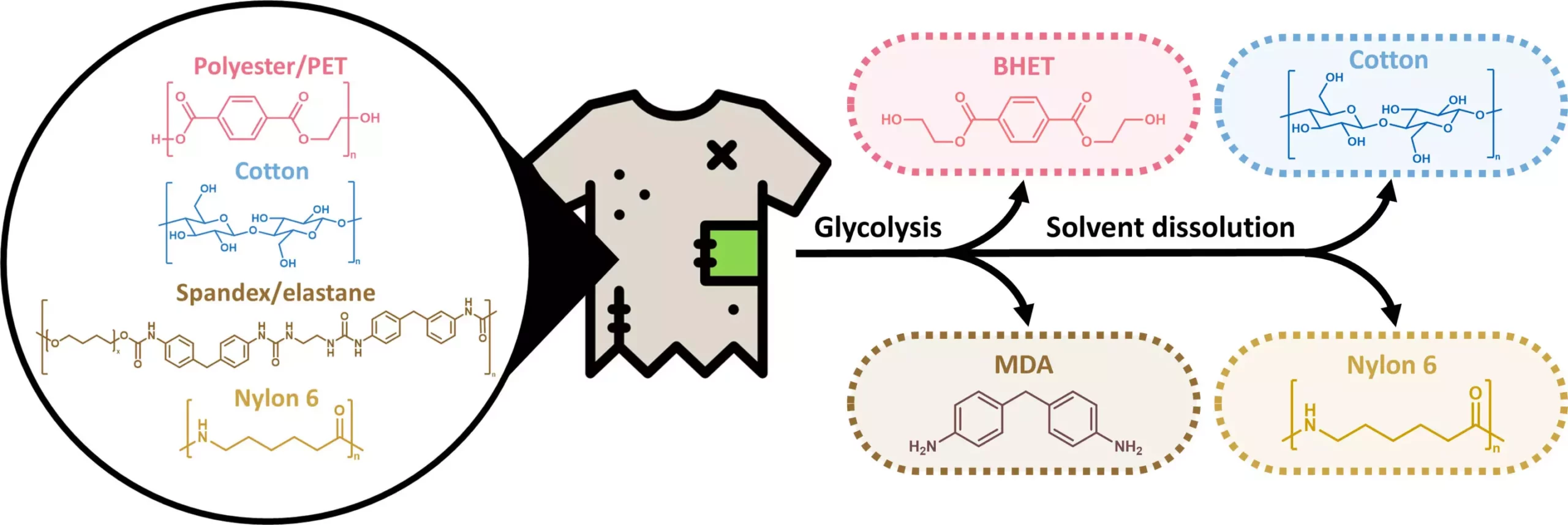The fashion industry has significantly contributed to environmental issues due to the rise of “fast fashion.” The rapid turnover of trendy clothes has resulted in an abundance of textile waste that is challenging to recycle. Traditional methods of textile recycling are often time-consuming and expensive, making it a less viable solution for addressing the growing concerns of sustainability in the fashion industry.
A recent study conducted by a team of chemical and biomolecular engineers has unveiled a groundbreaking method for chemically separating fibers in textiles. By using a solvent and zinc oxide as a catalyst, combined with a quick treatment in a microwave oven, the researchers were able to efficiently break down polyester blends into their individual components. This innovative approach opens up new possibilities for the rapid and cost-effective recycling of textiles, paving the way for a more sustainable future in fashion production.
During testing, the researchers successfully demonstrated the effectiveness of their process on polyester/cotton and spandex/nylon blends. By breaking down the materials into their original components, such as BHET and monomers, the integrity of the fibers was preserved, highlighting the potential for creating new batches of clothes from recycled textiles. However, the presence of flame retardant chemicals in treated clothes posed a challenge, requiring further developments to address these obstacles in the recycling process.
A Path Towards Sustainability
The implications of this research are far-reaching, offering a promising solution to the environmental impacts of textile waste in the fashion industry. By providing a practical and efficient method for recycling textiles, the study paves the way for a more sustainable approach to fashion production. Furthermore, the economic viability of this innovative process, as demonstrated by mathematical models, suggests that it could be a scalable solution for the industry as a whole.
The breakthrough in textile recycling represents a significant step towards a more sustainable future for the fashion industry. By addressing the challenges of recycling blended fibers through innovative chemical separation techniques, this research opens up new possibilities for reducing environmental waste and promoting a circular economy in fashion production. The potential for creating new clothes from recycled textiles highlights the transformative impact of this breakthrough, offering hope for a more sustainable and eco-conscious approach to fashion design and manufacturing.


Leave a Reply